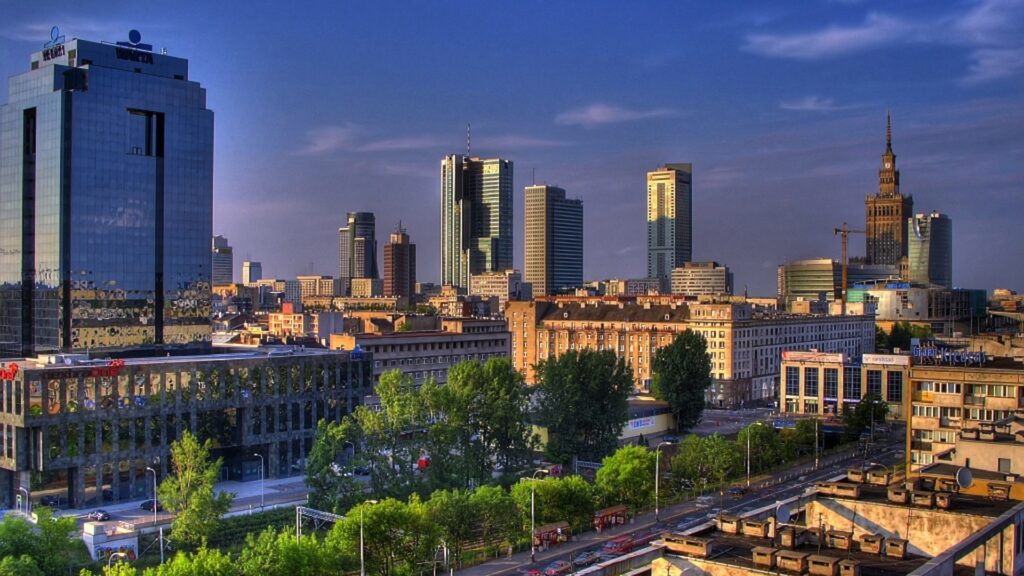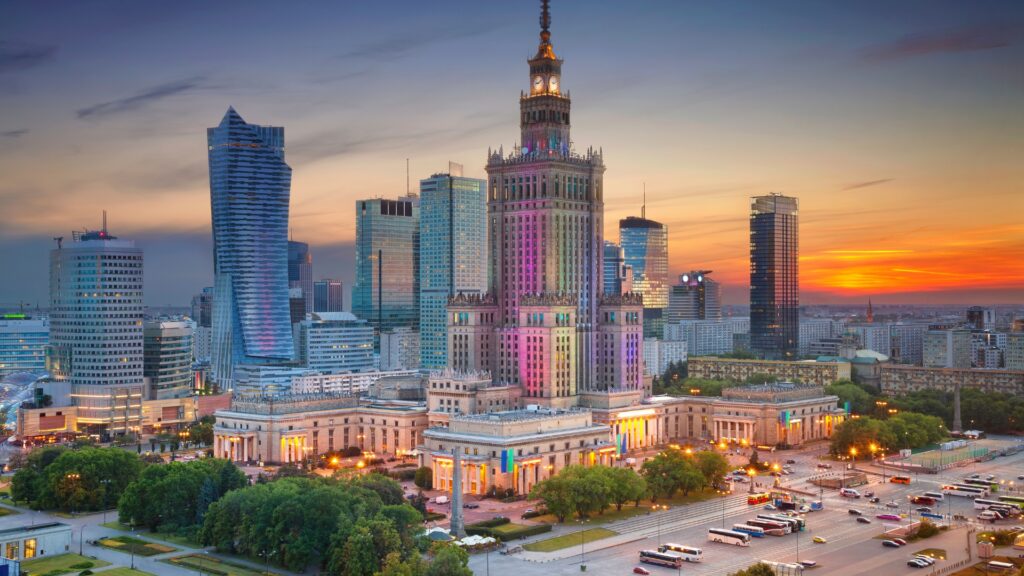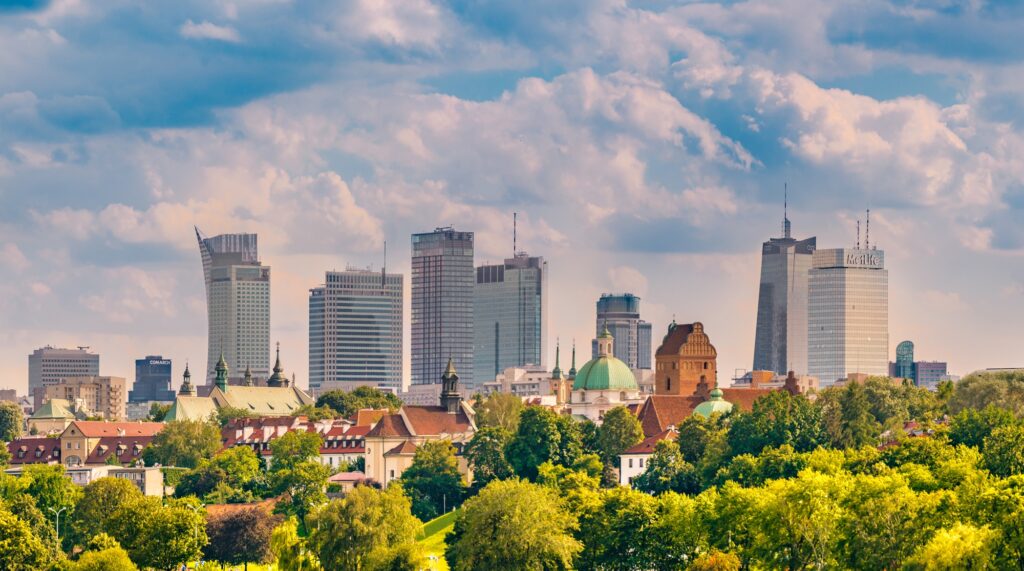Explore Poland – Highways & Byways
10 days / 9 nights
Discover the charm of Polish highways & byways combining the beauty of nature with heritage of the past. Take part in culinary workshops, classical music concert, boat ride under the ground in an old silver mine.
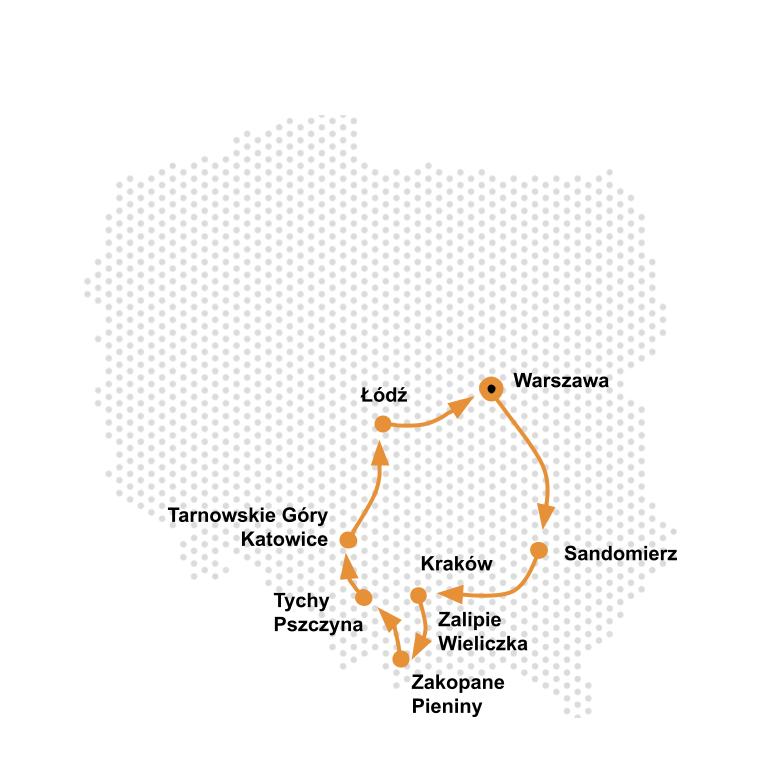
| Day 1 | > Warsaw |
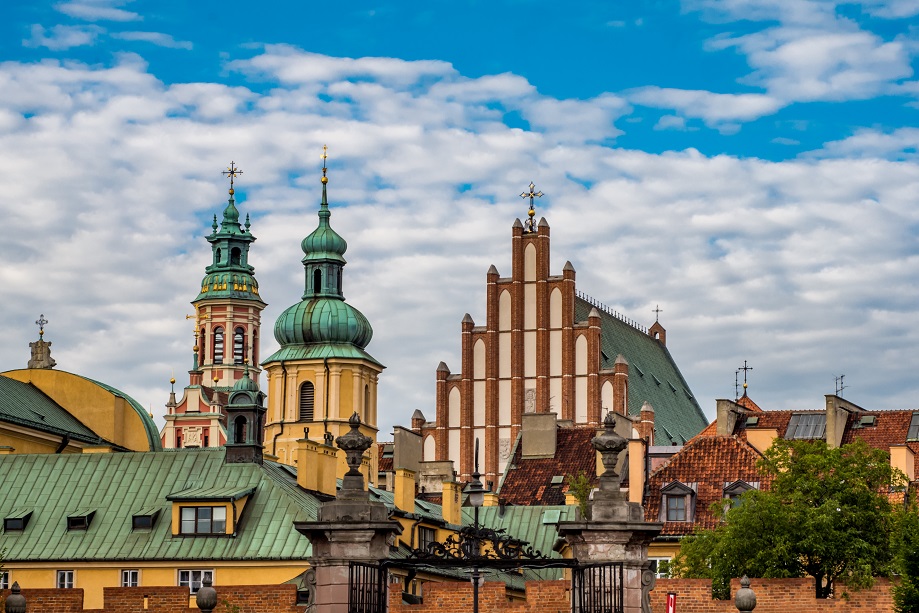

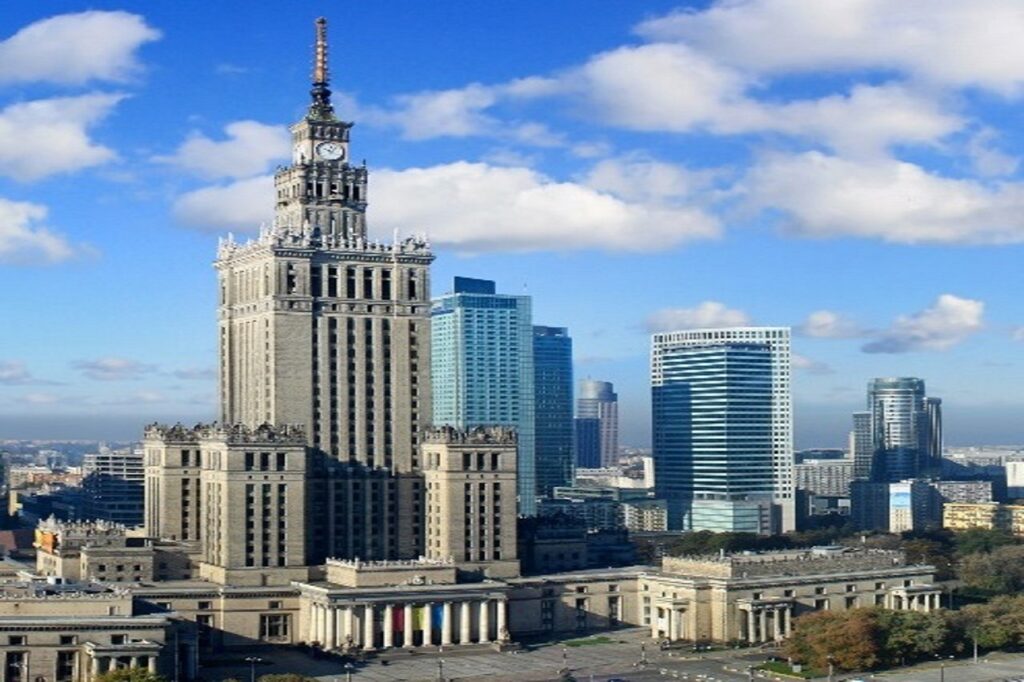
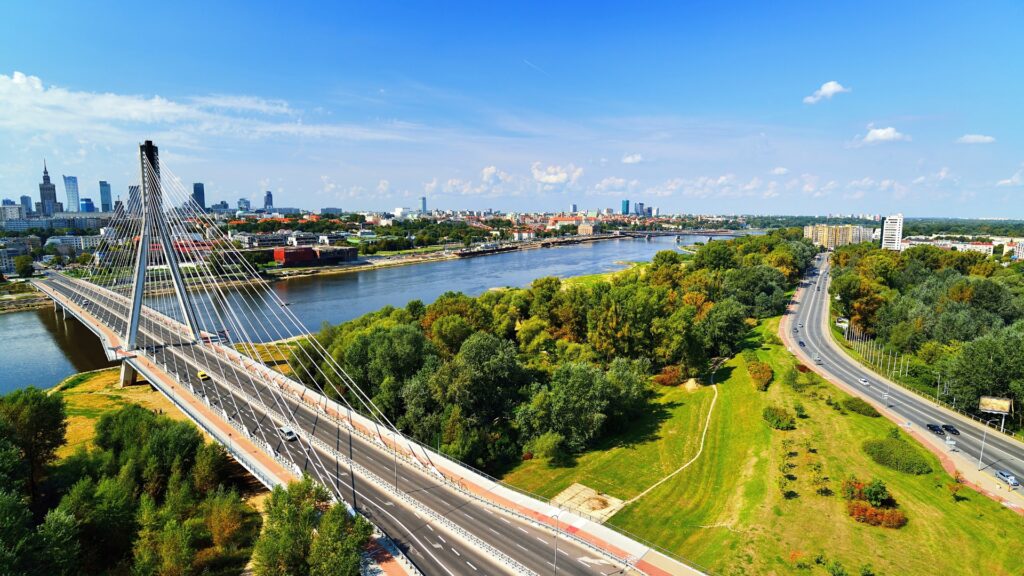
Welcome to Poland !
Arrival to Warsaw. Transfer to the hotel and check-in.
Accommodation in a centrally located hotel in Warsaw.
| Day 2 | > Warsaw |
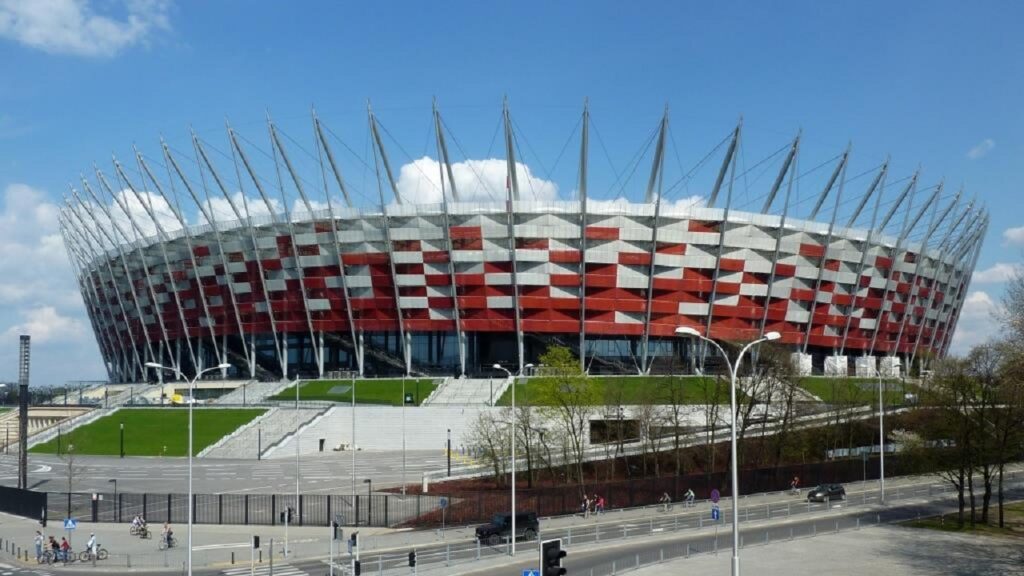
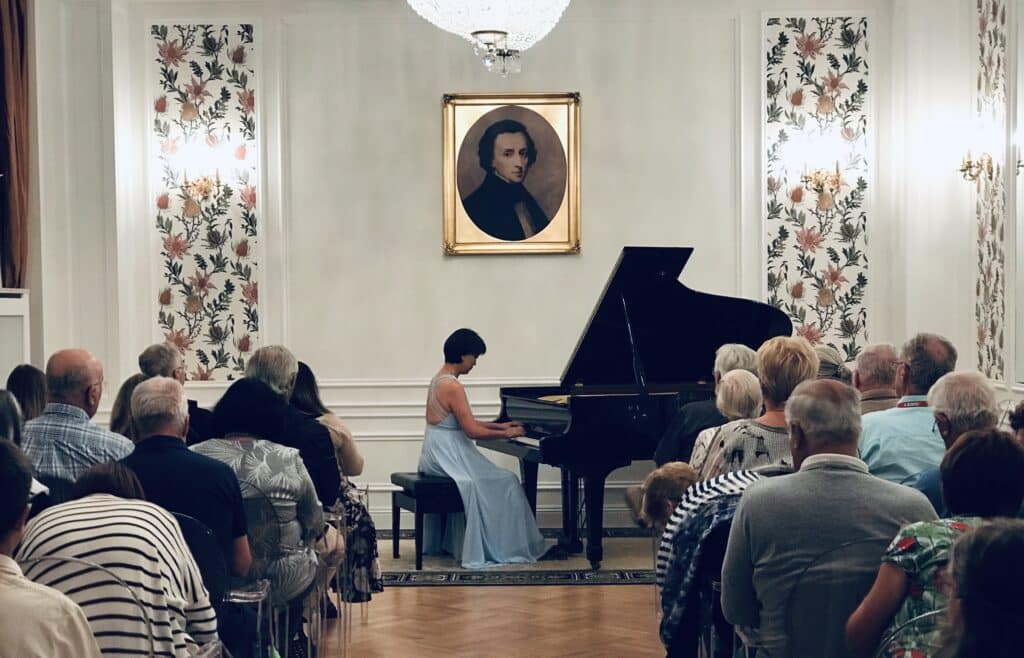
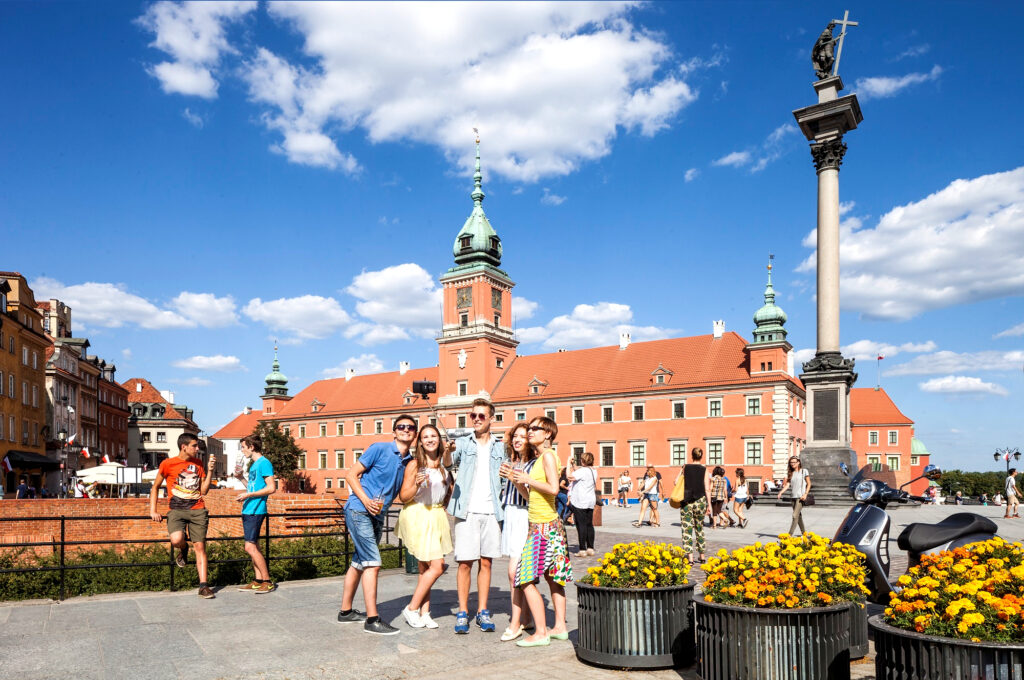
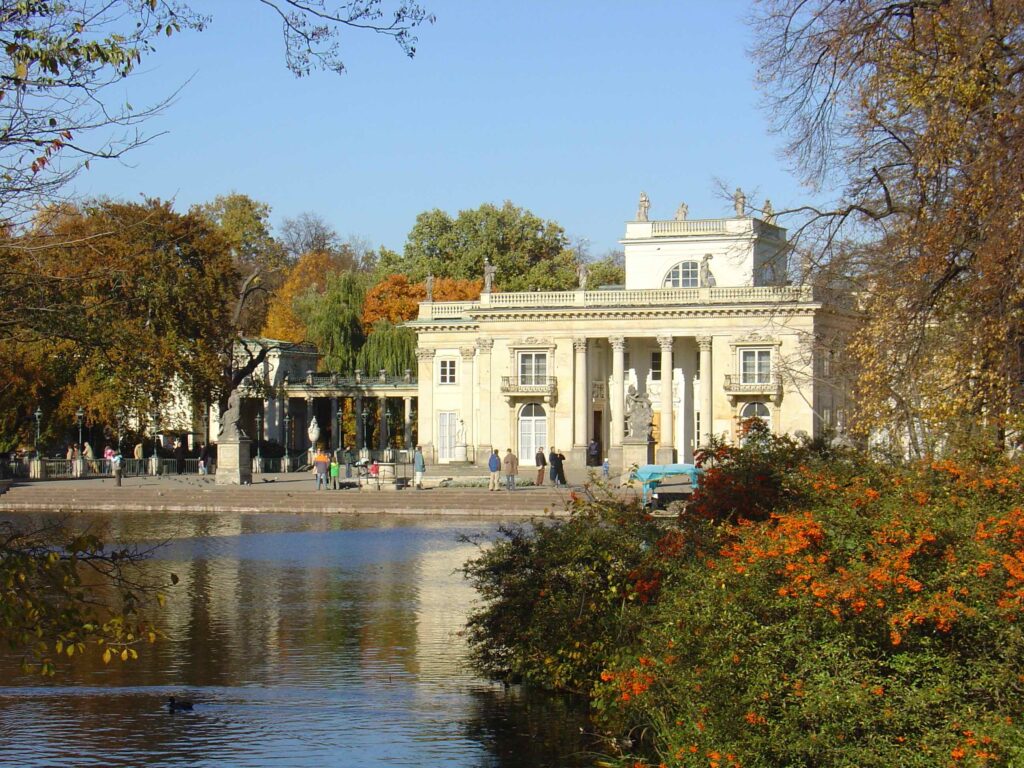
Breakfast at your hotel.
Visit of the capital city of Poland – Warsaw. During this tour, we will visit the most important spots in the city and will have an opportunity to become acquainted with the sometimes tragic past of Warsaw and the history of Poland. We will start our tour by visiting the Old Town, which is a UNESCO World Heritage Site and the New Town. We will continue our journey to Krasinski Palace, the Supreme Court building and the Warsaw Uprising Monument. After that, we will go to the Lazienki Royal Park where we will see the famous monument dedicated to Frederic Chopin where we will have an opportunity to relax in the beautiful rose garden and among the dazzling natural elements of the park. You will truly forget that you are in a major European Capital City.
Free time.
Evening Chopin concert.
Nestled in the cobblestone streets of the Old Town of Warsaw stands a unique neoclassical concert hall with original “plaster stucco” walls, crystal mirrors, and stylish nineteenth century decorations. As you walk through the doors, you will step into the era of Chopin for a two-part ensemble of Chopin’s greatest pieces played by internationally recognized pianists. During the intermission, you will be invited to a glass of sparkling wine, orange juice, or water. This concert is both a perfect start and/or finishing touch to a romantic evening in the Old Town. If you are starting your night with the concert, you may choose to end it in one of the many restaurants that our beautiful old town has to offer.
Accommodation in a centrally located hotel in Warsaw.
| Day 3 | > Warsaw > Ujazd > Sandomierz > Baranow Sandomierski |
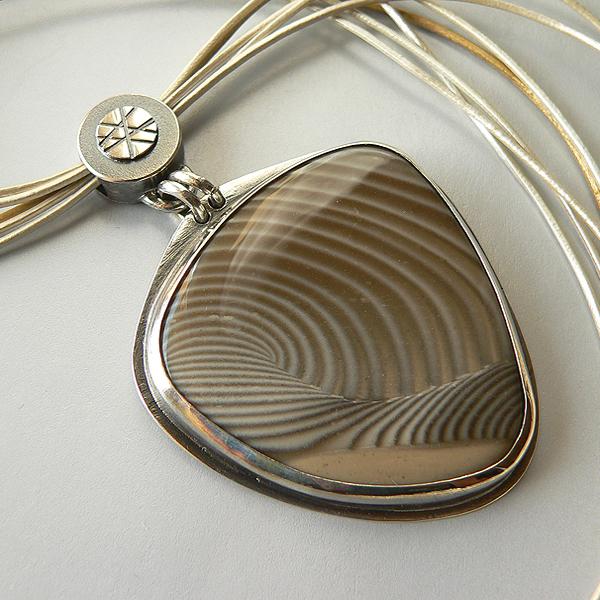

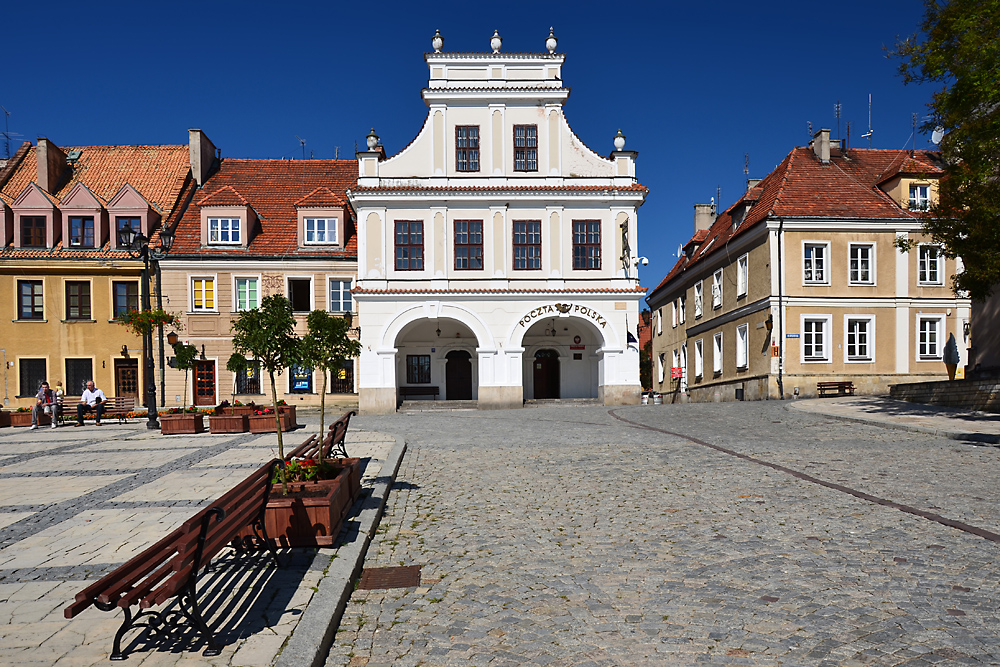
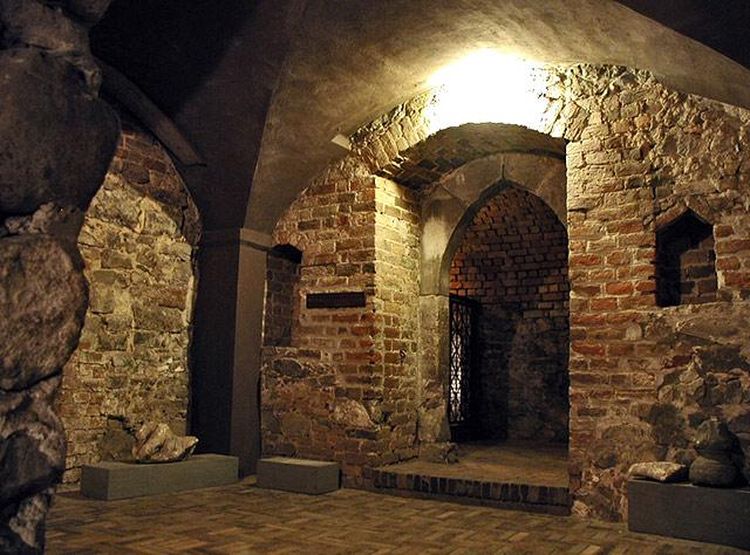
Breakfast at your hotel.
Visit to the ruins of Krzyztopor castle in Ujazd. It is nicknamed „callendar castle” as had 356 windows as days in a year, 56 rooms as weeks in a year, 12 big chambers as months, 4 towers and seasons. This 17th century residence build in Italian style palazzo in fotrezza was the biggest palace in Europe before Versailles close to Paris was build.
After short visit we proceed to Sandomierz, one of the most ancient cities in Poland that preserves the urban plan of Middle Ages. It is known as the capital of the Striped flint (in Polish: Krzemień Pasiasty) that appears only here, in the Sandomierz land in Poland. Due to its rarity it is called “the Polish diamond”, even though it is even more rare than the diamond.
Discover the secrets of the underground route in Sandomierz. Under the Main Square, there is a whole network of cellars excavated and used in the Middle Ages to store and refrigerate products. They also served as a refuge in dangerous situations.
In the evening we continue to Baranow Sandomierski.
On the east bank of the Vistula River shines the most valuable and most beautiful of former Polish magnate residences – the Castle in Baranow Sandomierski. This impressive example of the renaissance architecture is one of the best preserved objects in Europe.
Accommodation in Baranow Sandomierski castle-hotel.
| Day 4 | > Baranow Sandomierski > Zalipie > Wieliczka > Krakow |
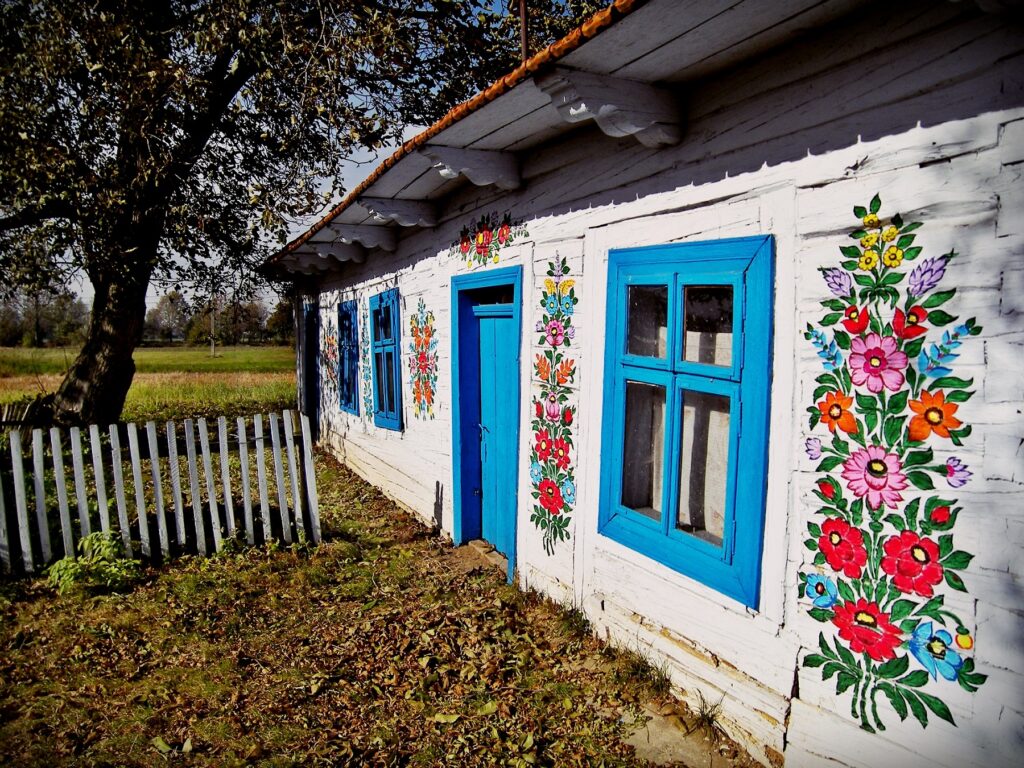
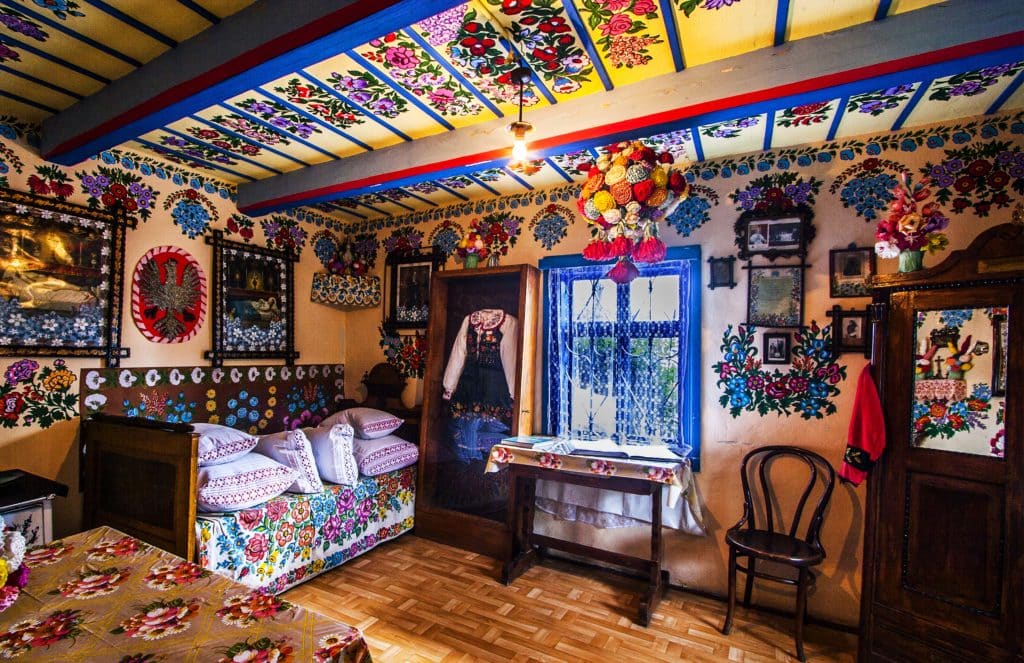
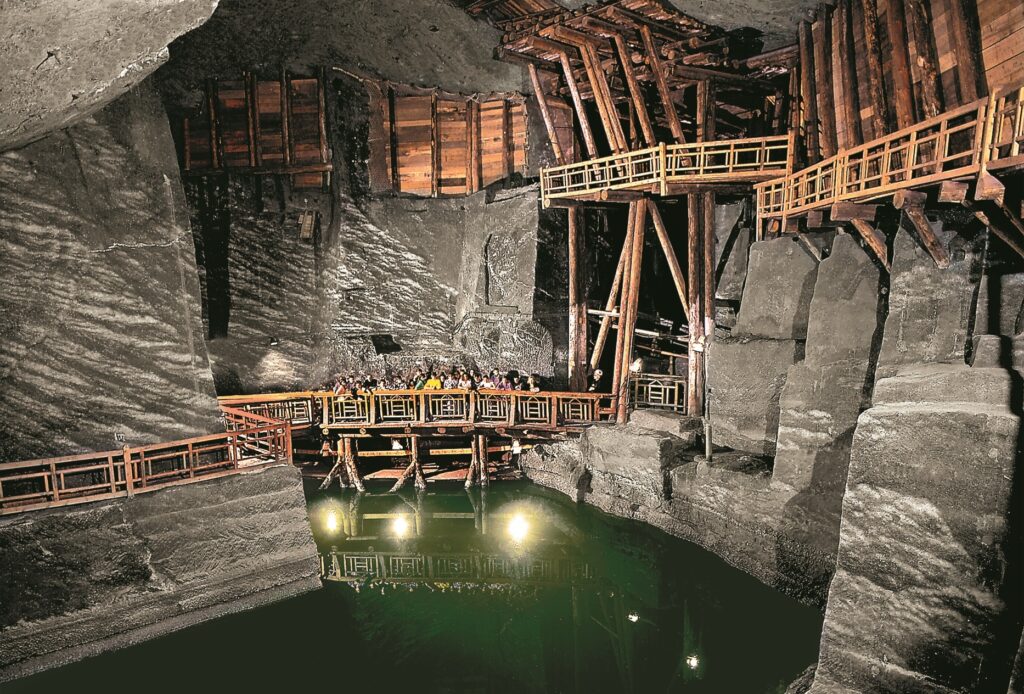
Breakfast at your hotel.
After breakfast take in the fine views of Polish countryside en route to the village of Zalipie. This picturesque little town has been enchanting its visitors for the past 80 years with its exquisite techniques of folk painting used by the locals to decorate their houses with colorful flower designs. Visit the Painters’ hut–museum to find various examples of traditional folk art of the area.
After a stroll through the village enjoy a traditional homemade lunch.
In the afternoon transfer from Zalipie to Wieliczka.
Wieliczka the most beautiful and the oldest operating salt mine in the world (UNESCO Heritage). From over 700 years it was a source of Polish fortune and a physical fundament of culture. Today Wieliczka is the most willingly visited Polish tourist object with magnificent chapels, charming underground lakes and original tools and equipment. During this tour you could see a number of excavated chambers on 3 levels adorned with beautiful sculptures made of salt as well as a salt museum.
Continue to Krakow.
Accommodation in a hotel centrally located on Krakow.
| Day 5 | > Krakow |
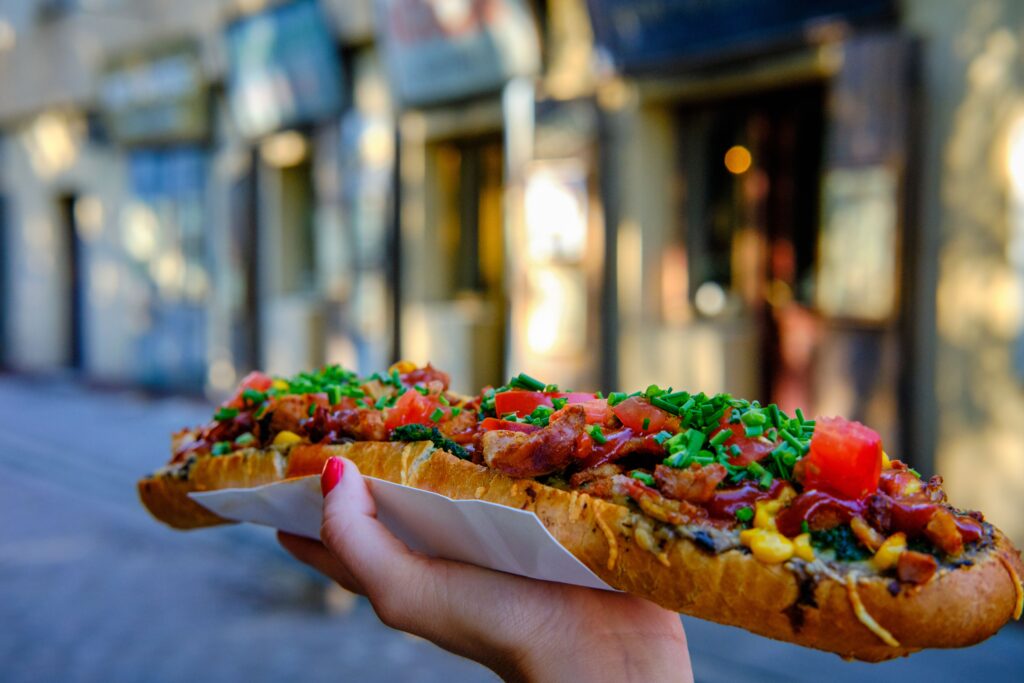
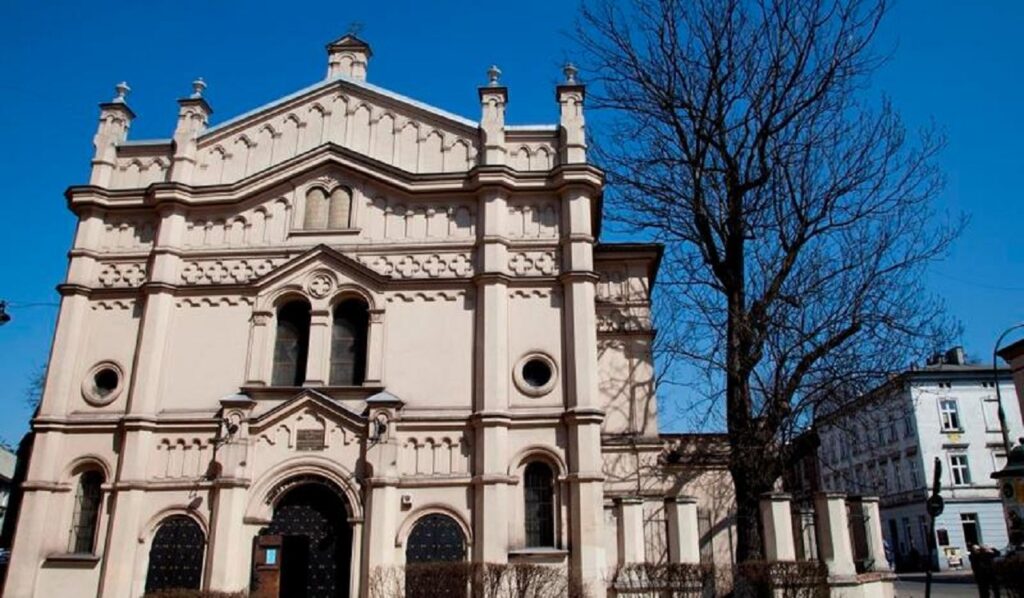
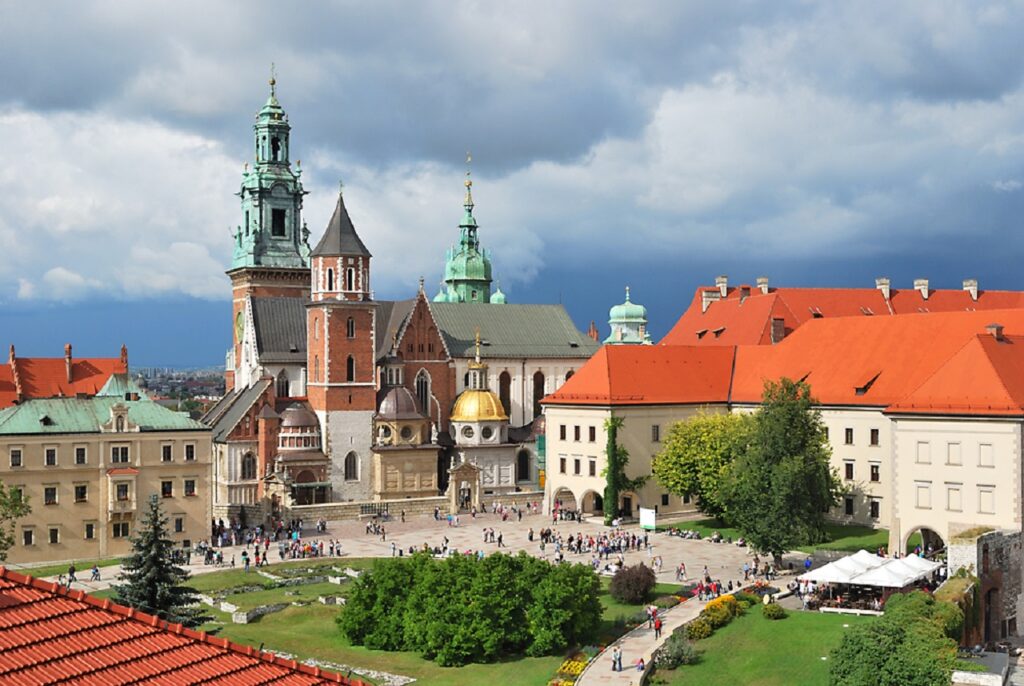
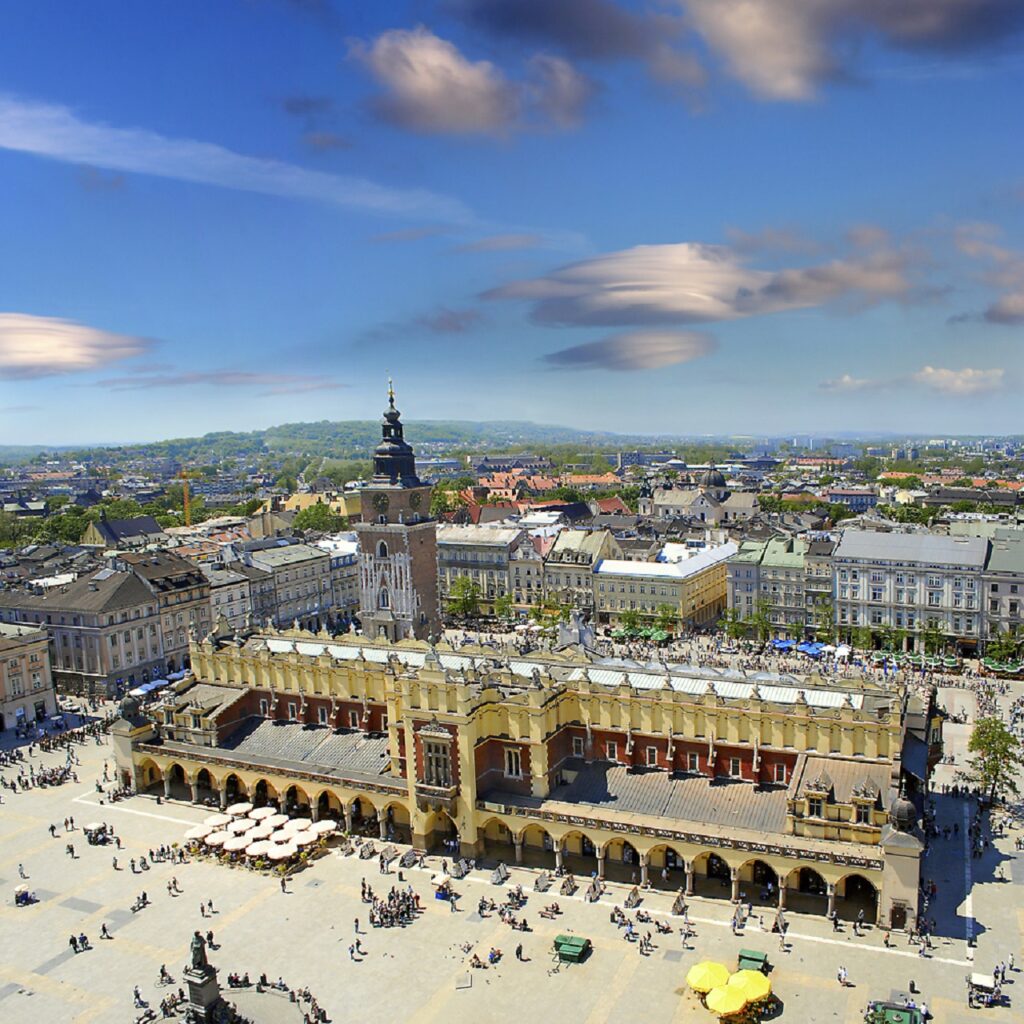
Breakfast at your hotel.
Krakow is the cultural capital of Poland with Old Town listed as UNESCO Heritage. During the tour you would see Barbican and defensive walls with Florian’s Gate, the Main Market Square with Sukiennice Cloth Hall, St Mary’s Church and Town Hall Tower. We would proceed to the Jagiellonian University, pass by Archbishop Palace (where John Paul II used to live) as well as St Andrew’s Church and St Peter and Paul’s Church to reach the Wawel Hill.
In the afternoon visit to Kazimierz district of Krakow. Kazimierz used to be a separate town close to medieval city of Krakow. It was mostly populated by Jewish community. Throughout years it became Krakow’s district, but the abundance of markets, synagogues and kirkuts (Jewish cemeteries) shaped character of this part of town. As Kazimierz depicts the history of Polish Jews, some shots of Steven Spielberg Schindler’s List were captured here. During this tour you would discover this charming part of Krakow with its monuments and complexed history.
At the end of a day we would have a *culinary workshop of “obwarzanek”*, the traditional bajgle of Krakow. Not only we would learn the history of it, but we would have a possibility to make them and taste them afterwards.
Accommodation in a hotel centrally located on Krakow.
| Day 6 | > Krakow > Pieniny Mountains > Krakow |
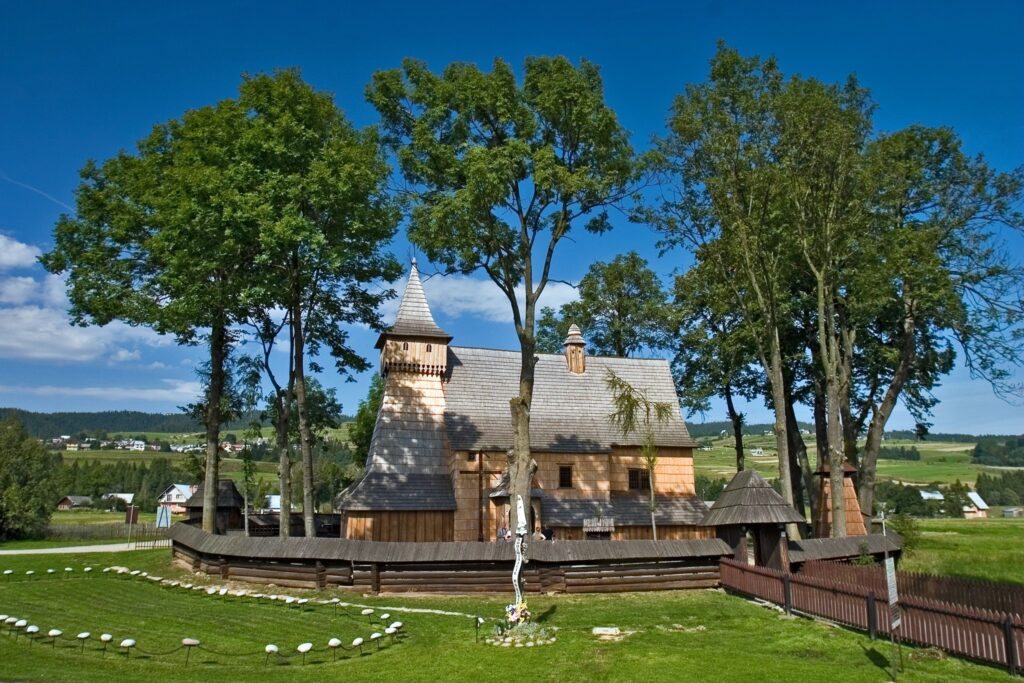
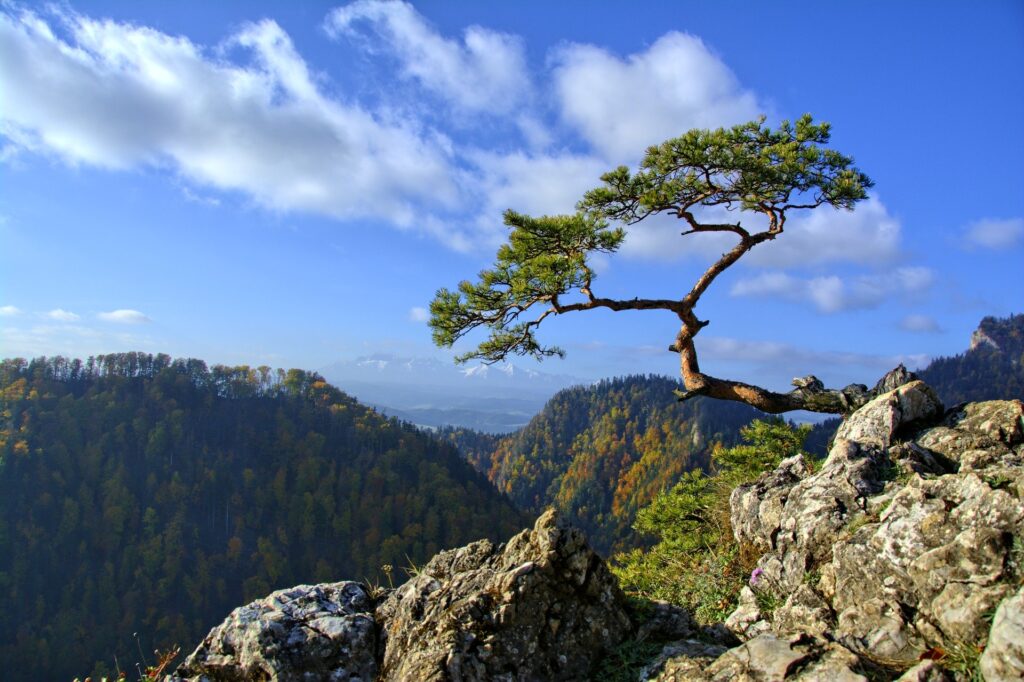
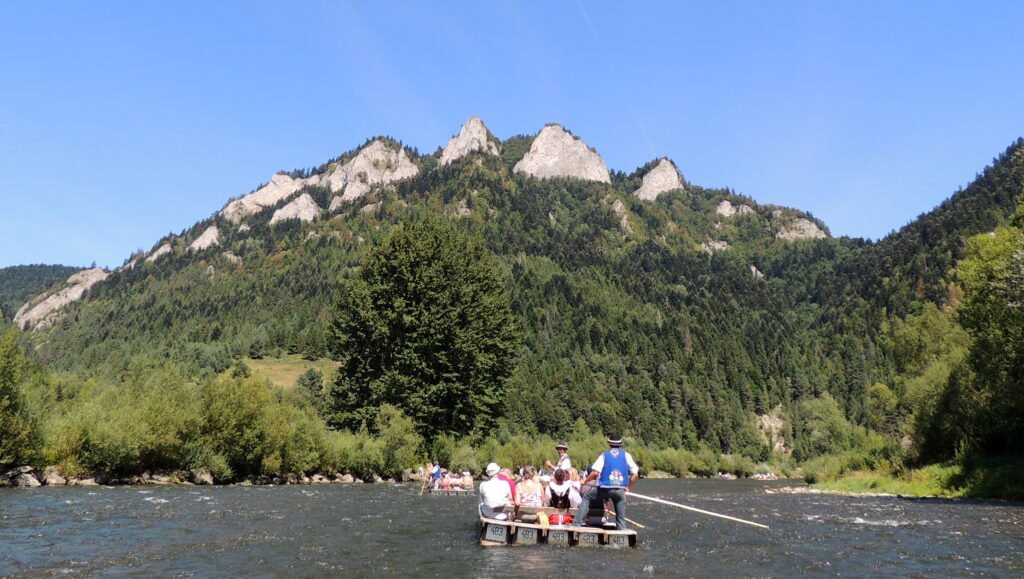
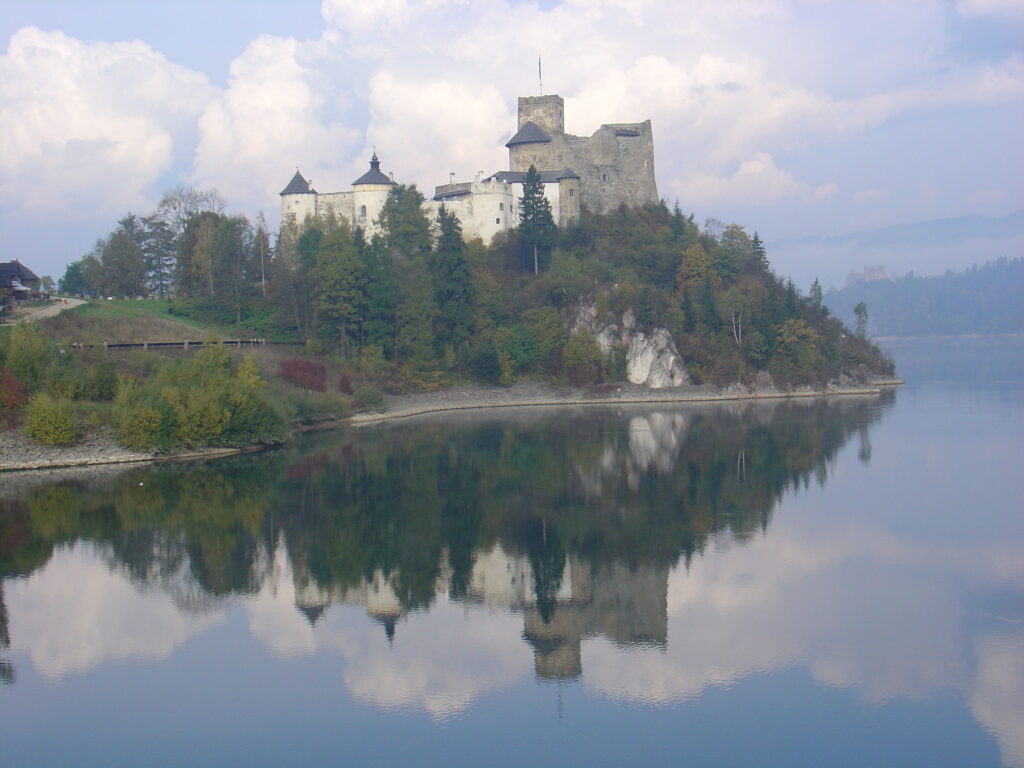
Breakfast at your hotel.
Transfer to Pieniny, the mountain range situated in southern Poland and northern Slovakia. Characterised by a variety of limestones builds picturesque, vertical white rocky walls along the Dunajec River with the highest peak of Three Crowns (982 m). It is an ideal place for relaxation in every season of the year. The most beautiful part of the mountain range with a unique landscape and many natural features is protected by the Pieniny National Park. The main attraction of this region is the rafting down the Dunajec River which is the most scenic river rafting routes in Europe. After arriving in Sromowce Wyżne, you will start your trip on traditional wooden rafts, the construction of which has remained unchanged for more then 200 years. Be inspired with a nature and experience unforgettable moments listening to the stories and old legends from raftsmen (flisaks).
Further transfer to Zakopane, called the capital of Tatra mountains.
Accommodation in a hotel centrally located in Zakopane.
| Day 7 | > Zakopane |
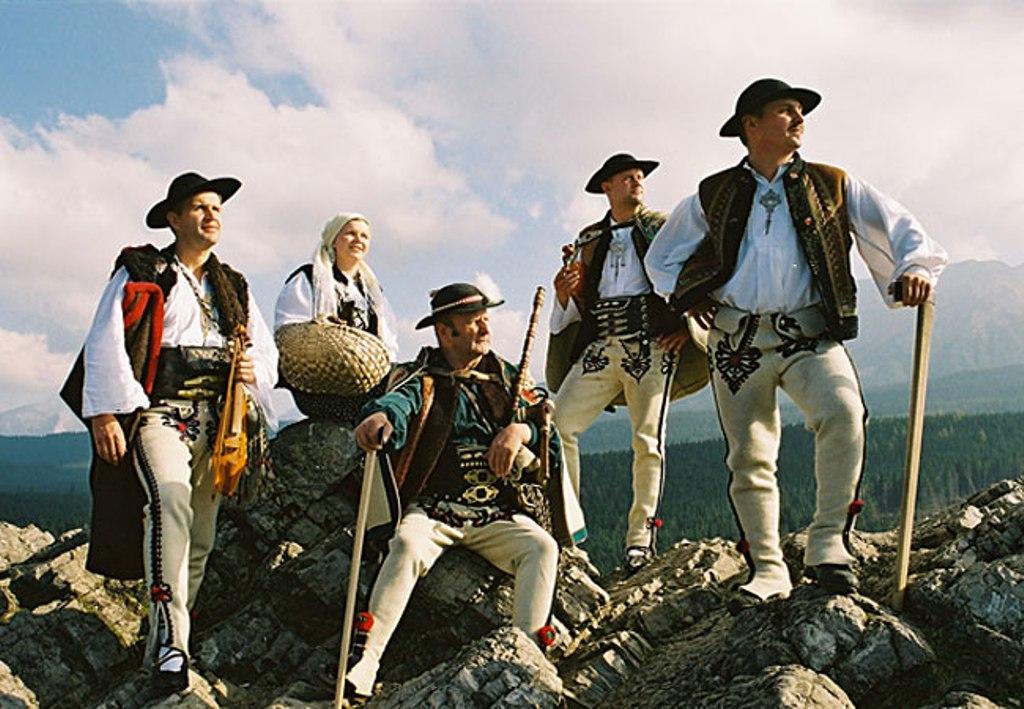
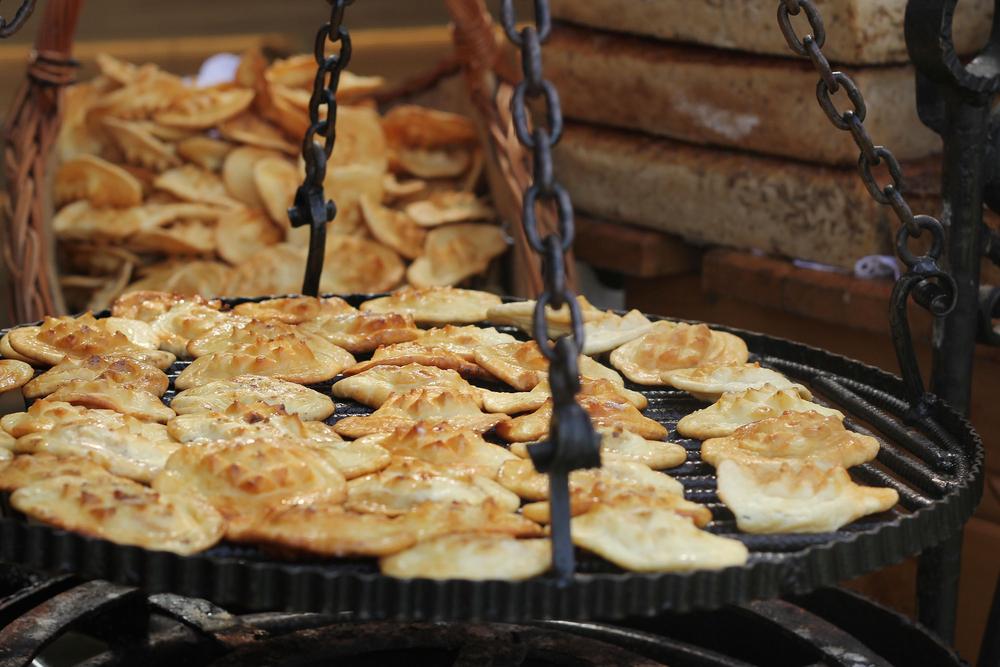
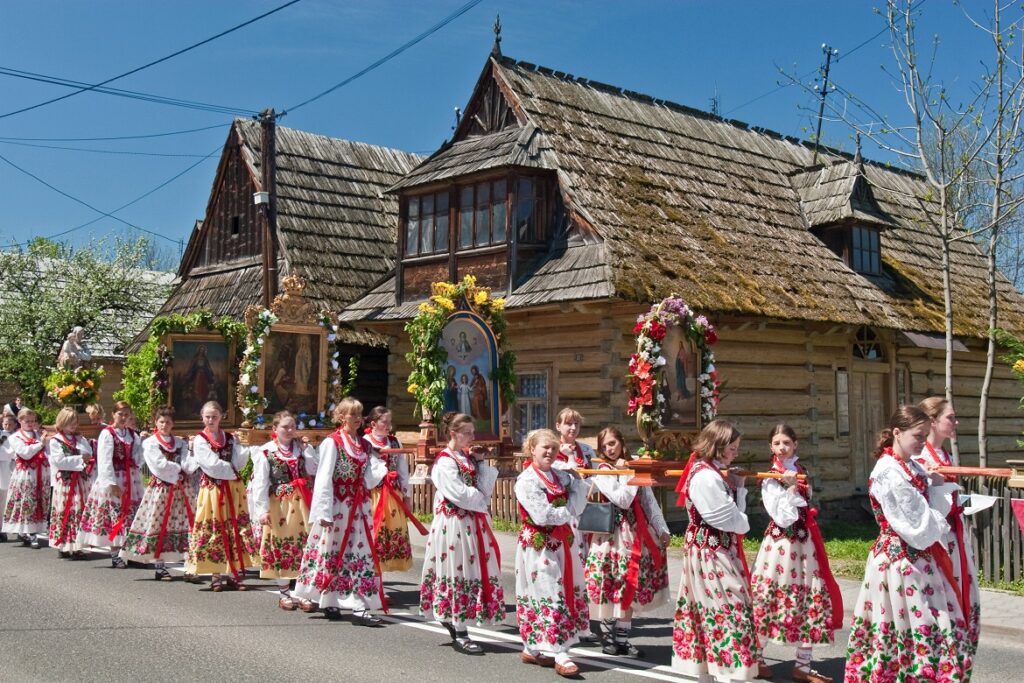
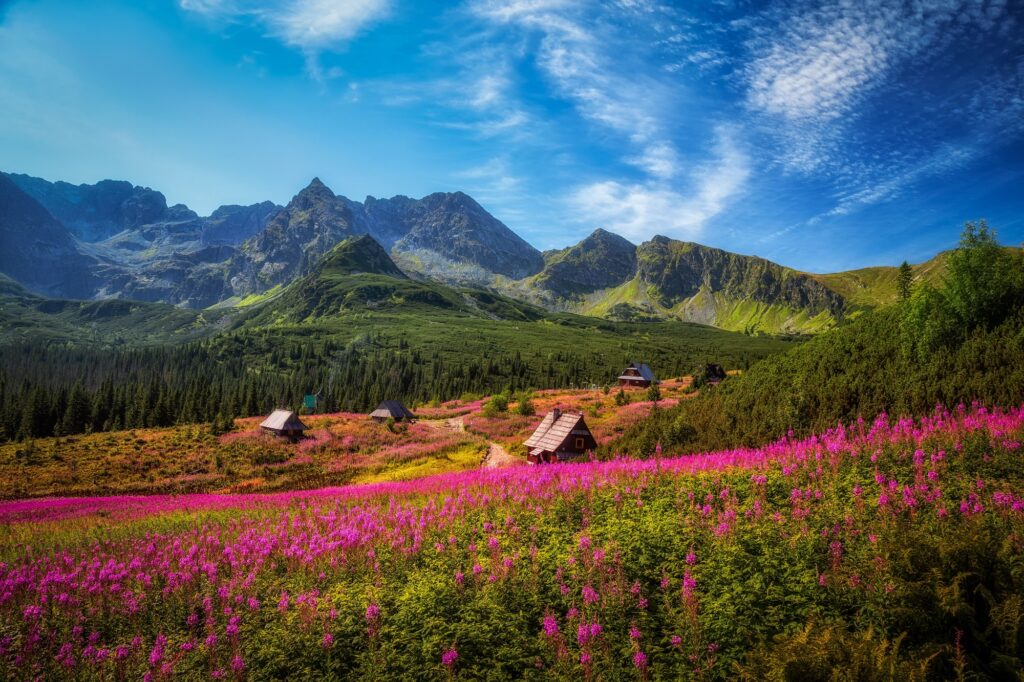
Breakfast at your hotel.
Zakopane is a town lying at the foot of the Tatra Mountains – the highest mountain range of the Carpathians. Because of the breathtaking landscapes, vicinity of the mountains and the fascinating culture and tradition of the highlanders, Zakopane became a popular tourist resort years ago. The town gained the title of “the winter capital of Poland” due to many skiing slopes and the winter sports infrastructure that has been developed. Nevertheless, it is a perfect place to get away from bustling cities at any time of the year, because the Podhale region has a lot to offer even to the pickiest travelers.
Accommodation in a hotel centrally located in Zakopane.
| Day 8 | > Zakopane > Pszczyna > Tychy > Katowice |
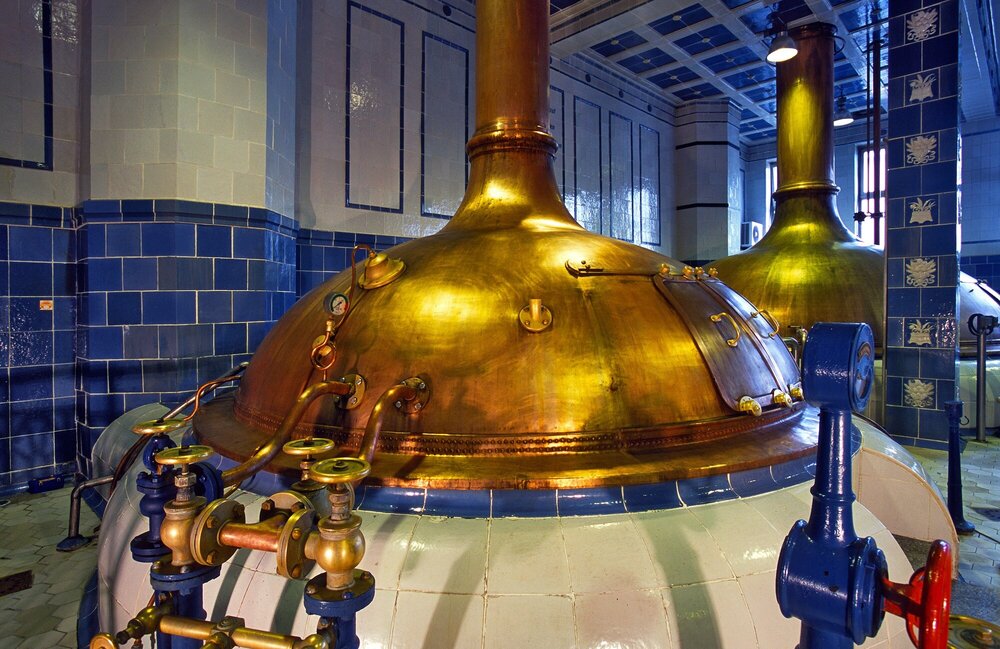
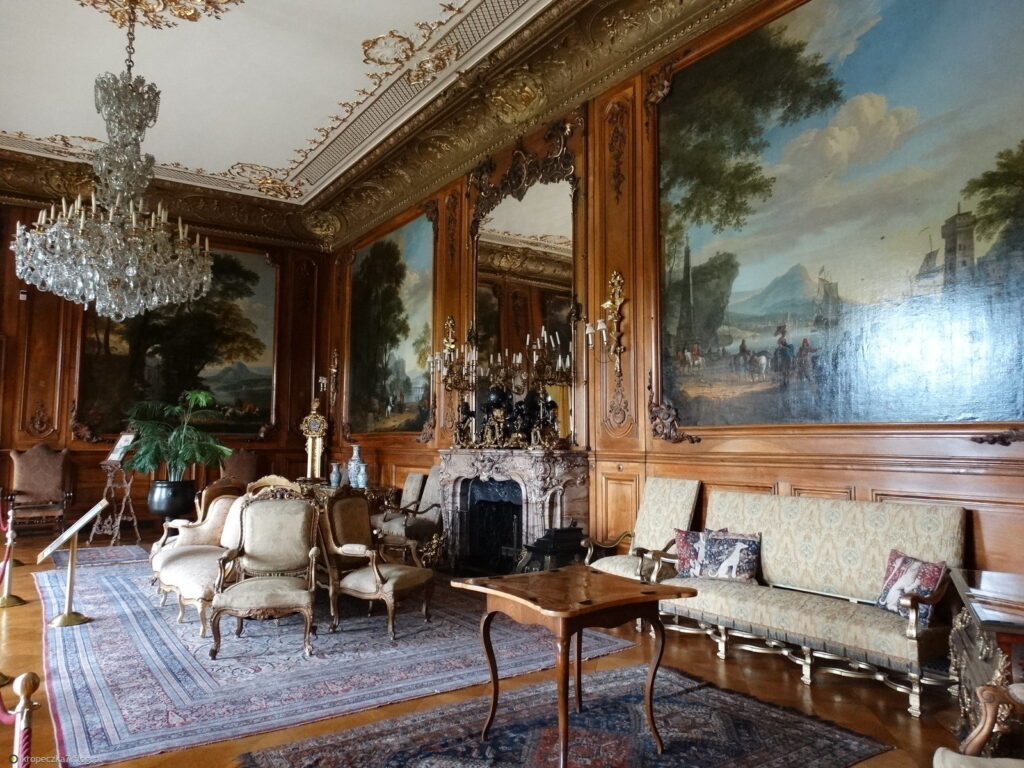
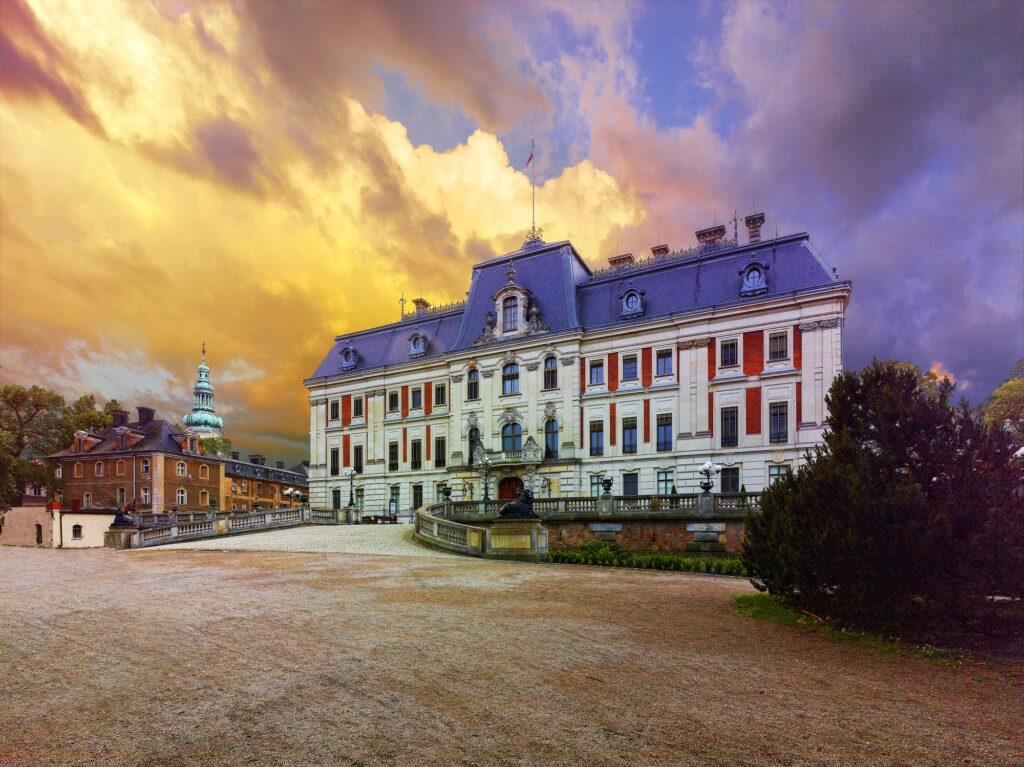
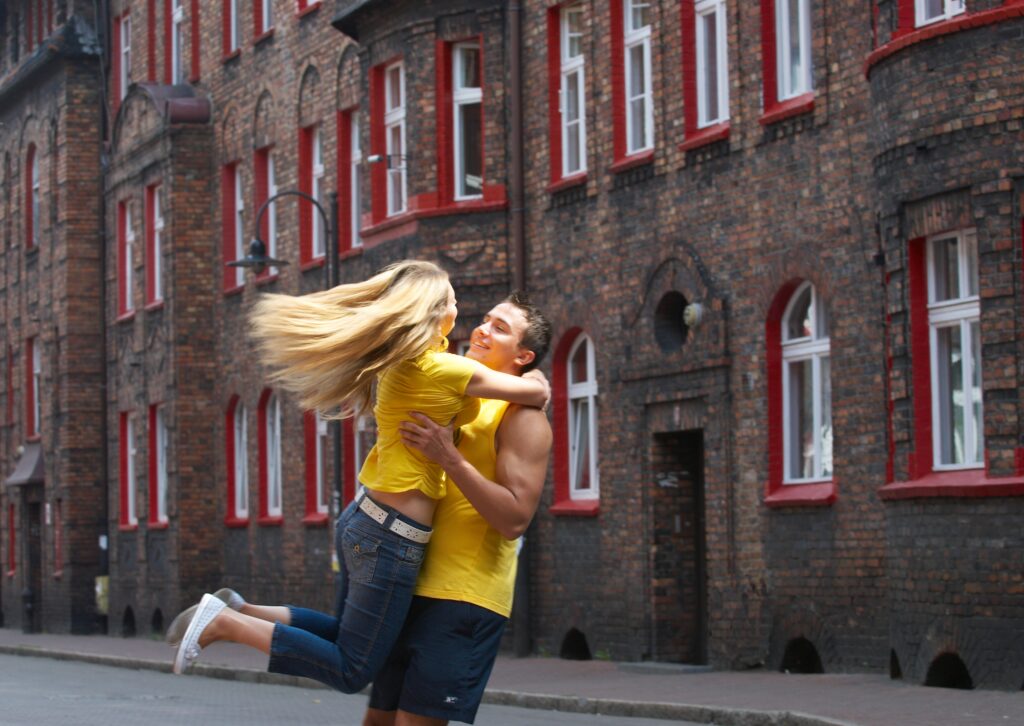
Breakfast at your hotel.
Transfer to Pszczyna.
Pszczyna Castle is a 13th century gothic castle, later rebuilt in a renaissance style and finally adorned from the outside in a baroque style. It was a residence of Polish Piast nobles. In 2009 it was voted as one of the “Seven Architectural Wonders of the Silesian Voivodeship” by the Silesian authorities and is often described as one of the most beautiful castle residences in Poland.
Transfer to the brewery in Tychy.
Discover the secrets of one of the largest Polish breweries and taste the most typical Polish beer brand – Tyskie, which name comes from this city!
Continue to Katowice.
Katowice – this industrial city is known for discovery of rich coal reserves, at the same time is the real mixture of cultures: Polish, German & Jewish. It is a centre of science, culture, industry, business and trade and was named a UNESCO City of Music. Sightseeing of Nikiszowiec area, part of Katowice city.
Accommodation in a hotel centrally located in Katowice.
| Day 9 | > Katowice > Tarnowskie Gory > Lodz > Warsaw |
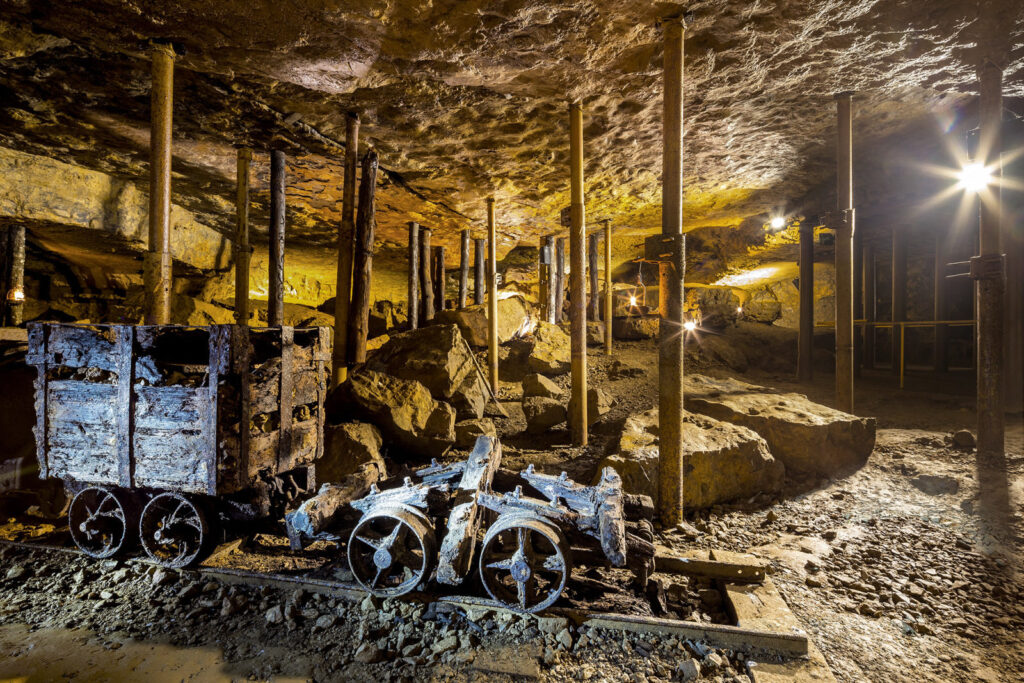
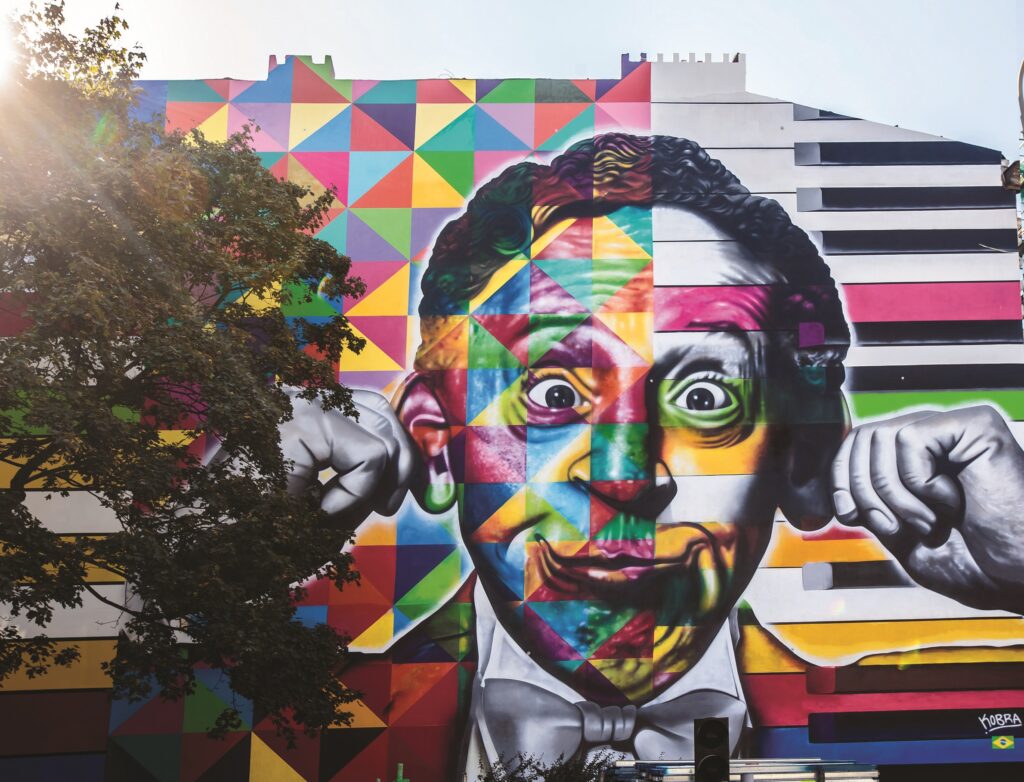
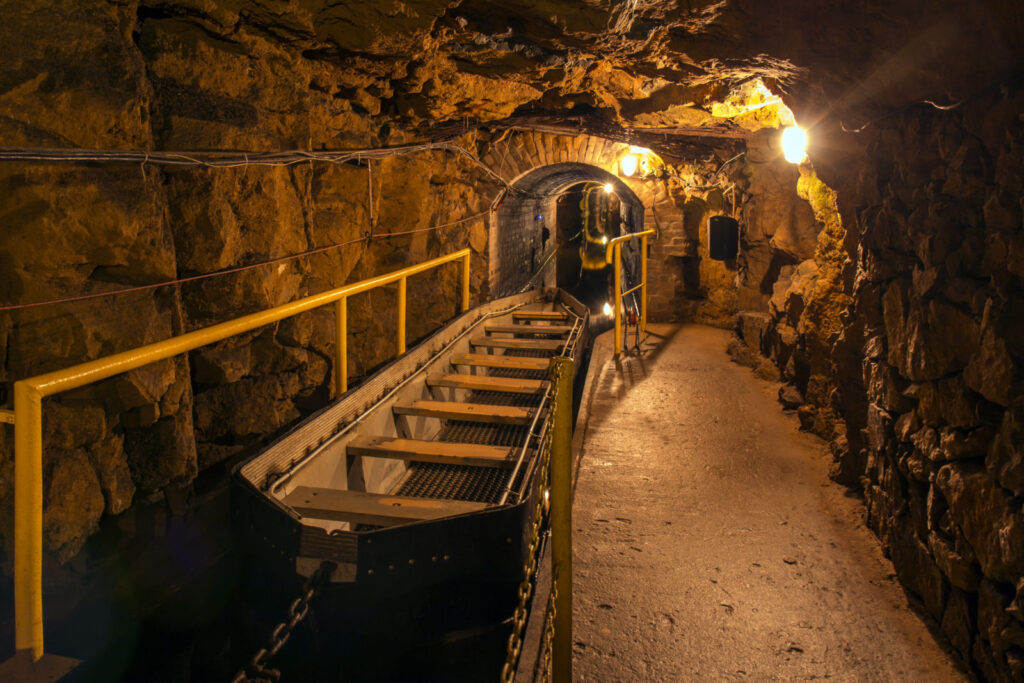
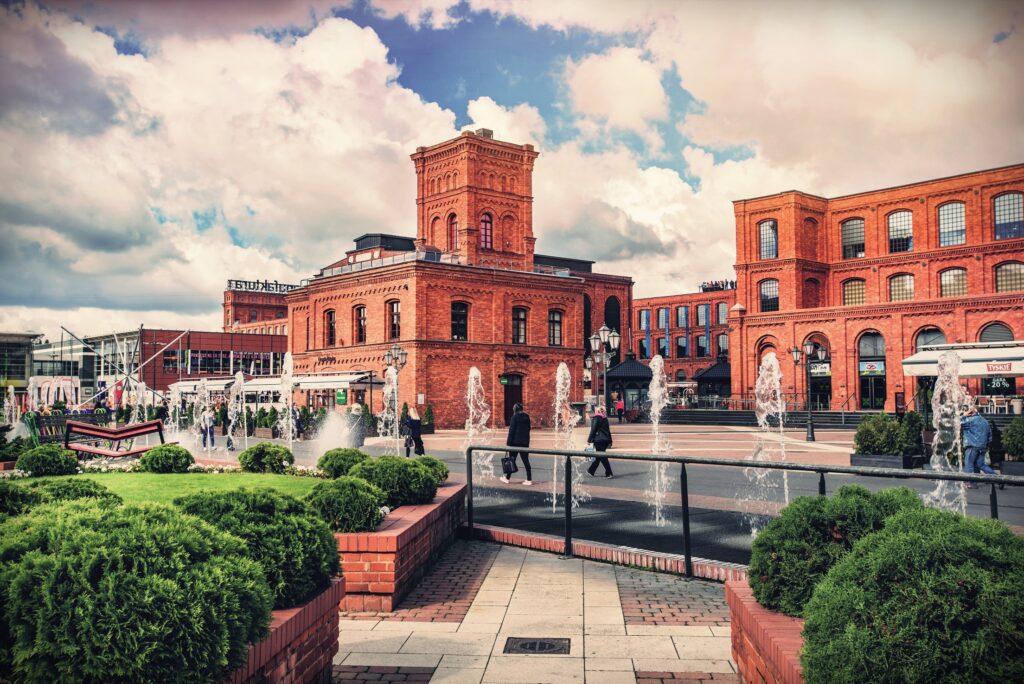
Breakfast at your hotel.
In the morning visit to Tarnowskie Gory.
Tarnowskie Gory – the city known for historic lead-ore mining. It’s silver mine is in the UNESCO Heritage List since 2017. The visit in Historic Silver Mines starts in an interactive museum where tourists get the knowledge of methods of silver. It proceeds with going underground. The trail is 1,749 meters long; 270 meters are travelled by boats.
Transfer to Lodz.
Lodz is one of the biggest Polish cities. During your visit you would find traces of the four cultures: Polish, Jewish, German and Russian that coexisted there and became one. Furthermore, you would admire modernist and industrial arquitecture. Thanks to its numerous factories, Lodz was also called the „Polish Manchester”. During the route you would see the Old Town and the industrial complex of Poznanski family, the famous Manufaktura. Next, you would visit the Scheibler fabric complex „Księży Młyn” that is a great example of the revitalization of the city during the last years. In the end, you would discover Piotrkowska Street, the most popular walkway full of shops, pubs, restaurants and sculptures that commemorate famous inhabitants of Lodz. Transfer to Warsaw.
Accommodation in a hotel centrally located in Warsaw.
Contact us
If you want us to prepare a special trip for you, please write us specifying all your requirements. We will be happy to answer.

